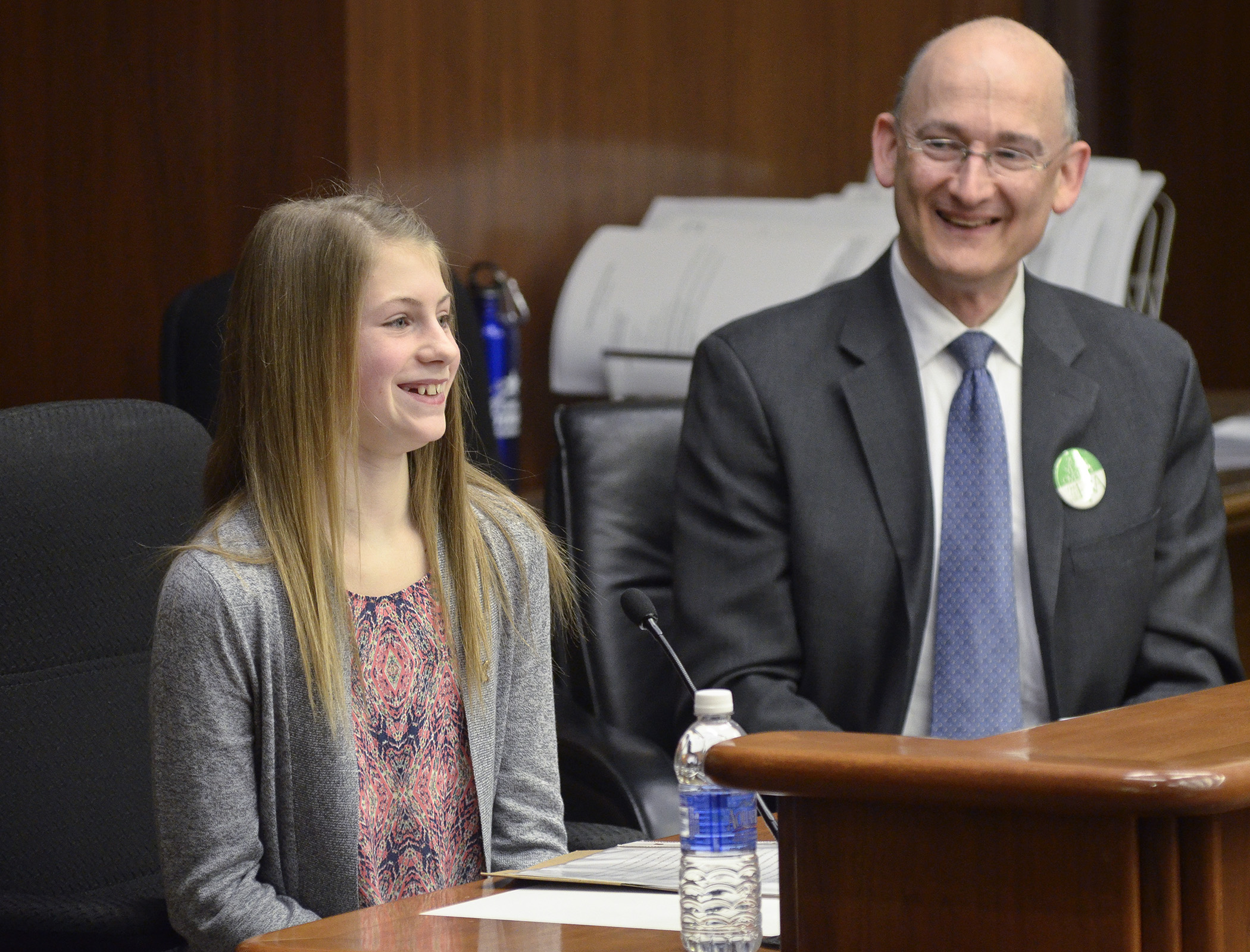Water conservation on the minds of east metro students

Sophie Davis can tell you all about the ecological challenges associated with keeping water levels up in closed lake basins.
The 12-year-old knows precisely how much water is wasted during daily tasks such as taking a shower, flushing the toilet or brushing your teeth.
But that’s the point say supporters of an east metro-based conservation pilot program aimed at educating and developing the youngest members of society to help lead the way in solving water conservation problems of the present and the future.
“Now I notice more when people waste water, and I think about it every day,” said Sophie, one of several fifth graders at Matoska International School in White Bear Lake, who last year participated in the Race 2 Reduce program – which partners with schools in the area to teach students about water conservation and help them in engage in developing local and global solutions.
Supporters of the program are asking legislators for funding to expand their education advocacy efforts in the White Bear Lake and Mahtomedi school districts.
HF1110, sponsored by Rep. Peter Fischer (DFL-Maplewood), would appropriate $200,000 for the next two years to provide grants to allow H2O for Life, a White Bear Lake-based water conservation organization that runs the Race 2 Reduce program, to expand its educational opportunities for students in north and east metro schools.
The bill was laid over Thursday by the House Education Finance Committee for possible inclusion in an omnibus bill. Its companion, SF991, sponsored by Sen. Chuck Wiger (DFL-Maplewood), awaits action by the Senate Finance Committee.
Students develop local and global solutions to conserve water
The municipalities that make up White Bear Lake and Mahtomedi school districts all have one thing in common, they have many surrounding lakes and wetlands. Those bodies of water and their connection to local aquifers afford students in the Race 2 Reduce programs a chance to connect water conservation education to tactile experiences, said Michael Lovett, superintendent for White Bear Lake Area Schools.
One case in particular Lovett highlighted during testimony before the committee is how students in the program research the mystery of why White Bear Lake has continued its steady decline in water levels over the past decade.
Students like Sophie have learned about the connection the lake has to the Prairie du Chien-Jordan Aquifer, which many residents and businesses in the area draw on for drinking and plumbing water. Teachers trained in the curriculum then help students develop action plans to address the problem, said Program Director Paul Steinhauser.
“No one really knows if the lake level will ever come back,” Steinhauser said. “Whatever ends up being the solution to this local problem will be less costly if we start conservation measures with our youngest learners.”
Students participating in the program last year also raised $4,000 to help children in Uganda increase their access to fresh water.
That type of educational learning environment also tends to lead students to help make water conservation changes at home, said Fischer.
Related Articles
Search Session Daily
Advanced Search OptionsPriority Dailies
Ways and Means Committee OKs proposed $512 million supplemental budget on party-line vote
By Mike Cook Meeting more needs or fiscal irresponsibility is one way to sum up the differences among the two parties on a supplemental spending package a year after a $72 billion state budg...
Meeting more needs or fiscal irresponsibility is one way to sum up the differences among the two parties on a supplemental spending package a year after a $72 billion state budg...
Minnesota’s projected budget surplus balloons to $3.7 billion, but fiscal pressure still looms
By Rob Hubbard Just as Minnesota has experienced a warmer winter than usual, so has the state’s budget outlook warmed over the past few months.
On Thursday, Minnesota Management and Budget...
Just as Minnesota has experienced a warmer winter than usual, so has the state’s budget outlook warmed over the past few months.
On Thursday, Minnesota Management and Budget...